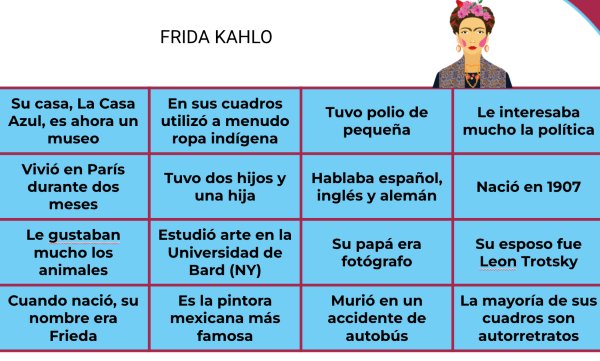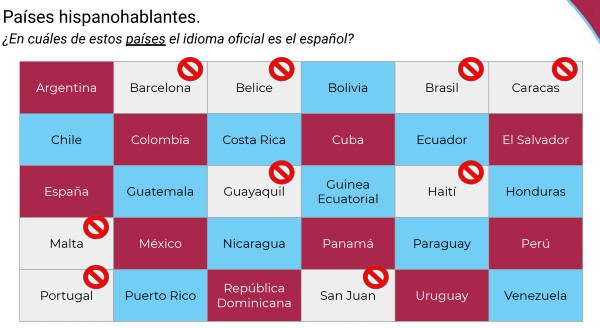Objective: introduce or review topics
Required materials: smartboard
Preparation: minimal (or none if you use the examples provided below)
Time: at least 20 minutes
Number of students: any
Resources:
- Spanish-speaking countries: PDF - Google slide
- St. Patrick's Day: PDF - Google slide
- Cinco de Mayo: PDF | Google slide
How to play:
This game is an adaptation of the TV show Wipeout. In the Spanish class, it can be used to review topics ( join Bablingua to access our example about Ellen Ochoa and Frida ) or to introduce something new (use this file to talk about St. Patrick's Day in an engaging way and this one for Cinco de Mayo).
First of all, divide your students in groups. It'll be better if you don't have more than 5 groups, otherwise they may get bored while waiting for their turn.
Show the panel and let the students know how many wrong sentences there are. Their job will be to find them out.
The first group will begin. They need to try to choose a true sentence and read it out loud. If they do, they get a point. If they don't (they choose a false statement), they lose all their points.

Then it'll be the turn of the second group. They'll continue playing until only the false sentences remain on the panel. The winner will be the team with more points at that time.
Use every sentence to review or explain your class objectives. If you use the panel about the Spanish-speaking countries, for example, explain that Guinea Ecuatorial is the only African country where Spanish is an official language, or that Caracas is a city, not a country.

Follow-up activities:
Make a copy of any of our Google Slides and customize it to match what you're doing in class. If you're studying clothes, you can change the panel so students have to find Ropa de verano. Just type about 4 winter clothes (gorro, abrigo, guantes, bufanda) and fill out the remaining spaces with clothes we can wear in summer (pantalón corto, falda, camiseta, sandalias, bañador, blusa, camisa, bluyín, gorra, vestido, sombrero).
Another idea is to encourage students to build their own panels about topics they have worked on. If they have done projects about the Spanish-speaking countries, they can organize the most importante information in a panel, add some false details, and play with the rest of the class.
